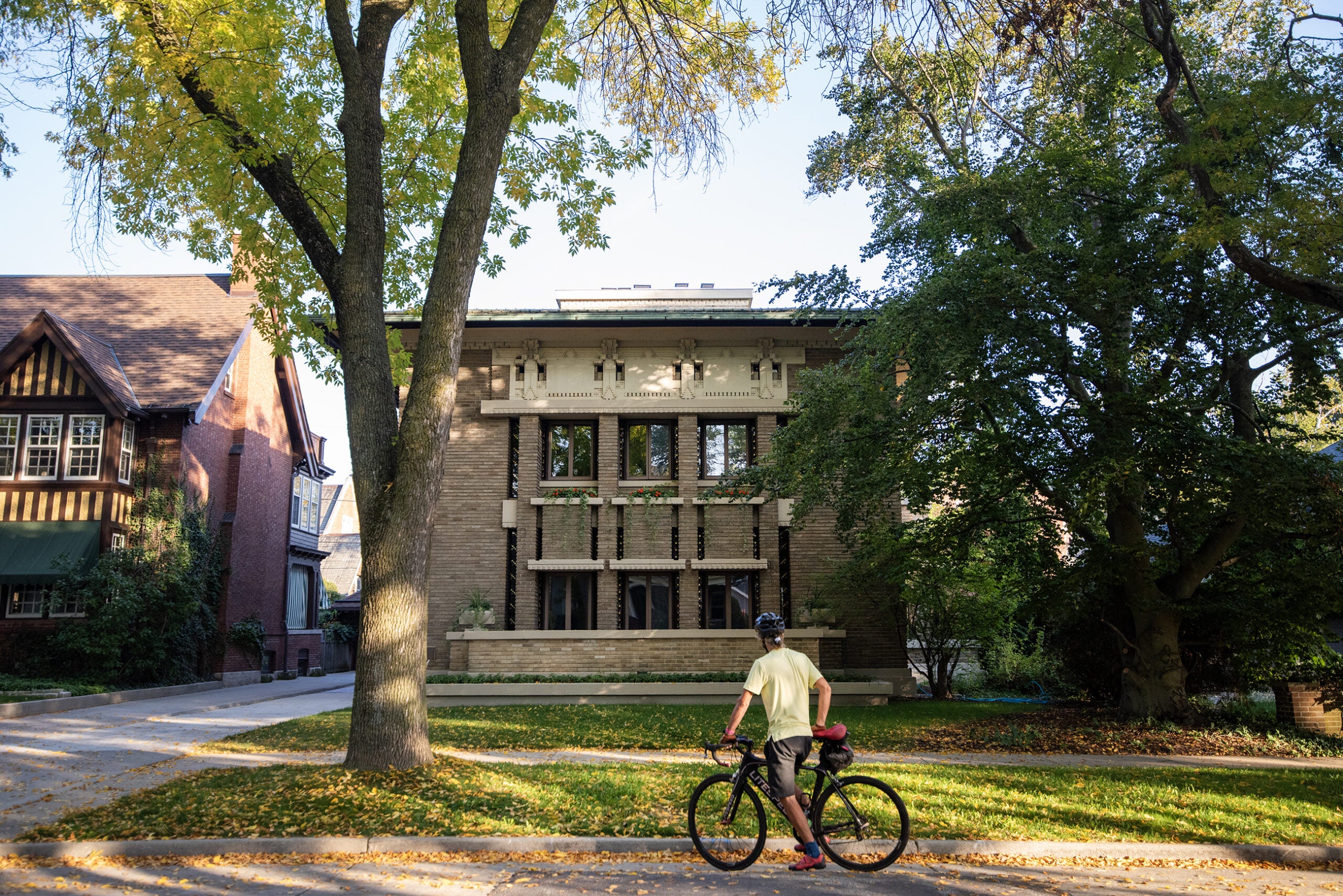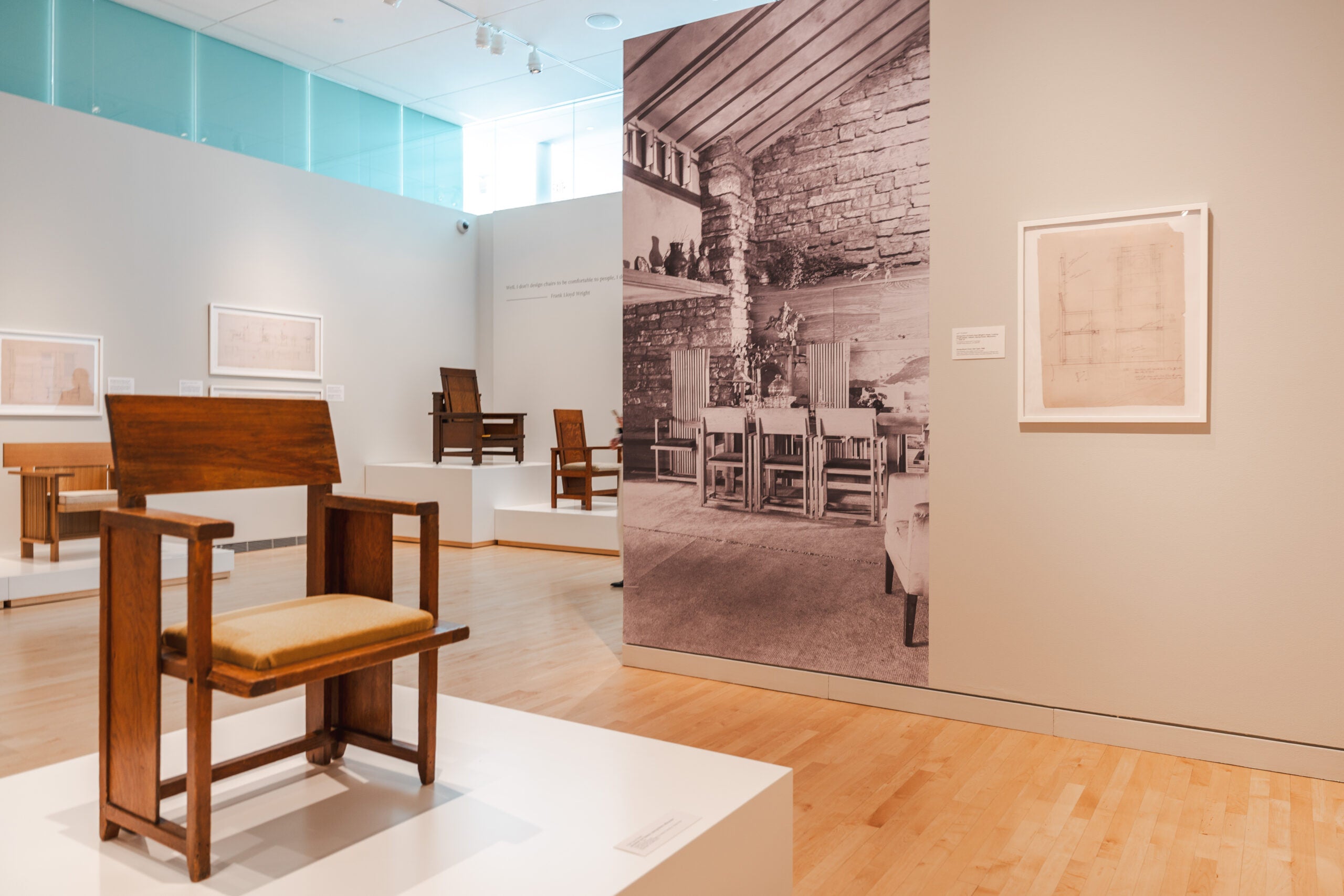In 1916, before Frank Lloyd Wright traveled to Japan to oversee construction of the Imperial Hotel in Tokyo, he designed a home in Milwaukee for an alderman and his family.
Now, more than 100 years later, that home is for sale for only the second time in its history, complete with many of its original architectural elements — including leaded glass windows, a central fireplace and built-in cabinetry.
The Frederick C. Bogk House, which is on the National Register of Historic Places, is believed to be the only single-family residential project Wright designed for a family in the city of Milwaukee. The home’s listing agent Melissa LeGrand of @properties-elleven | Christie’s International Real Estate said it’s one of Wright’s “architectural masterpieces.”
News with a little more humanity
WPR’s “Wisconsin Today” newsletter keeps you connected to the state you love without feeling overwhelmed. No paywall. No agenda. No corporate filter.
“It’s a wonderful facade and pure art from the exterior,” she said.
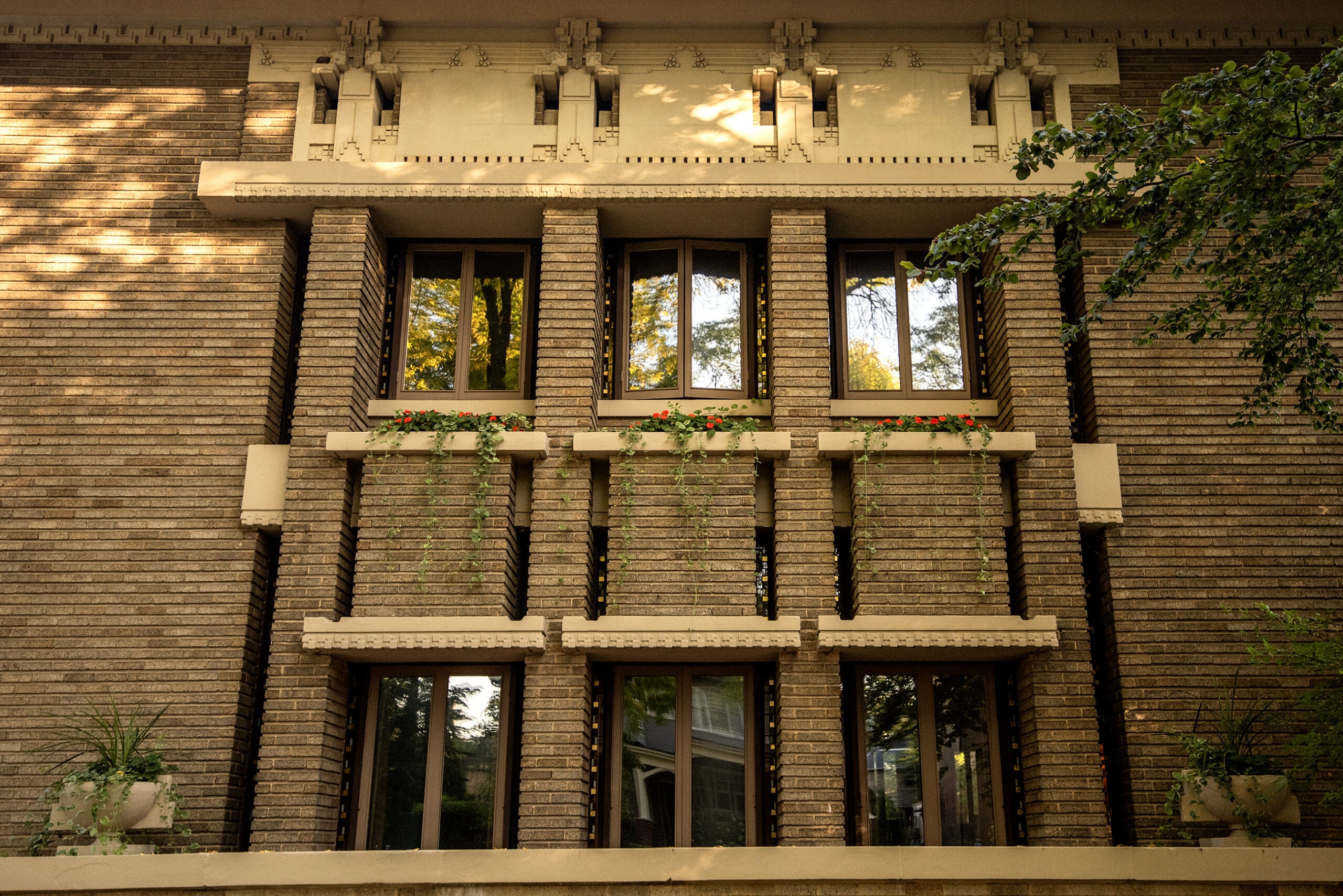
John Waters, the preservation programs manager for the Frank Lloyd Wright Building Conservancy, said the home was designed after the architect had perfected his Prairie style, and before he completed his work on the Imperial Hotel.
“Bogk house is an important example of Wright’s work in that among other things it’s at a very transitional point in Wright’s work,” Waters said.
“The Bogk house in part, while it certainly has strong connections to the Prairie period, is in terms of its concrete ornament that’s on the house, is very tied in with the work he’s doing at the Imperial Hotel in Japan,” he added.

The home is now listed for $1.5 million after the Elsner family bought it in 1955. The five-bedroom house, located in Milwaukee’s Northpoint neighborhood, is 6,712 square feet. Several items from the original furniture collection — including the original dining room table, drop-leaf game table, library desk and dining room chairs — are also being sold by Christie’s auction house.
As of Monday morning, LeGrand said she’s already completed 15 private tours of the home. She said interested buyers from five different states will also be traveling this week to see the home in person.
“It’s something that you always dream of as a real estate agent to be able to present such a remarkable property,” LeGrand said.
The history
Wright was commissioned to build the home by Frederick Bogk and his wife Mary in 1916. Bogk was an alderman in Milwaukee. At that time, Wright was preparing to travel to Japan to oversee construction of the Imperial Hotel in Tokyo.
“So you can see a lot of Japanese and Vietnamese architecture in it, kind of setting the stage for the next phase of his career in California and the American Southwest,” LeGrand said.
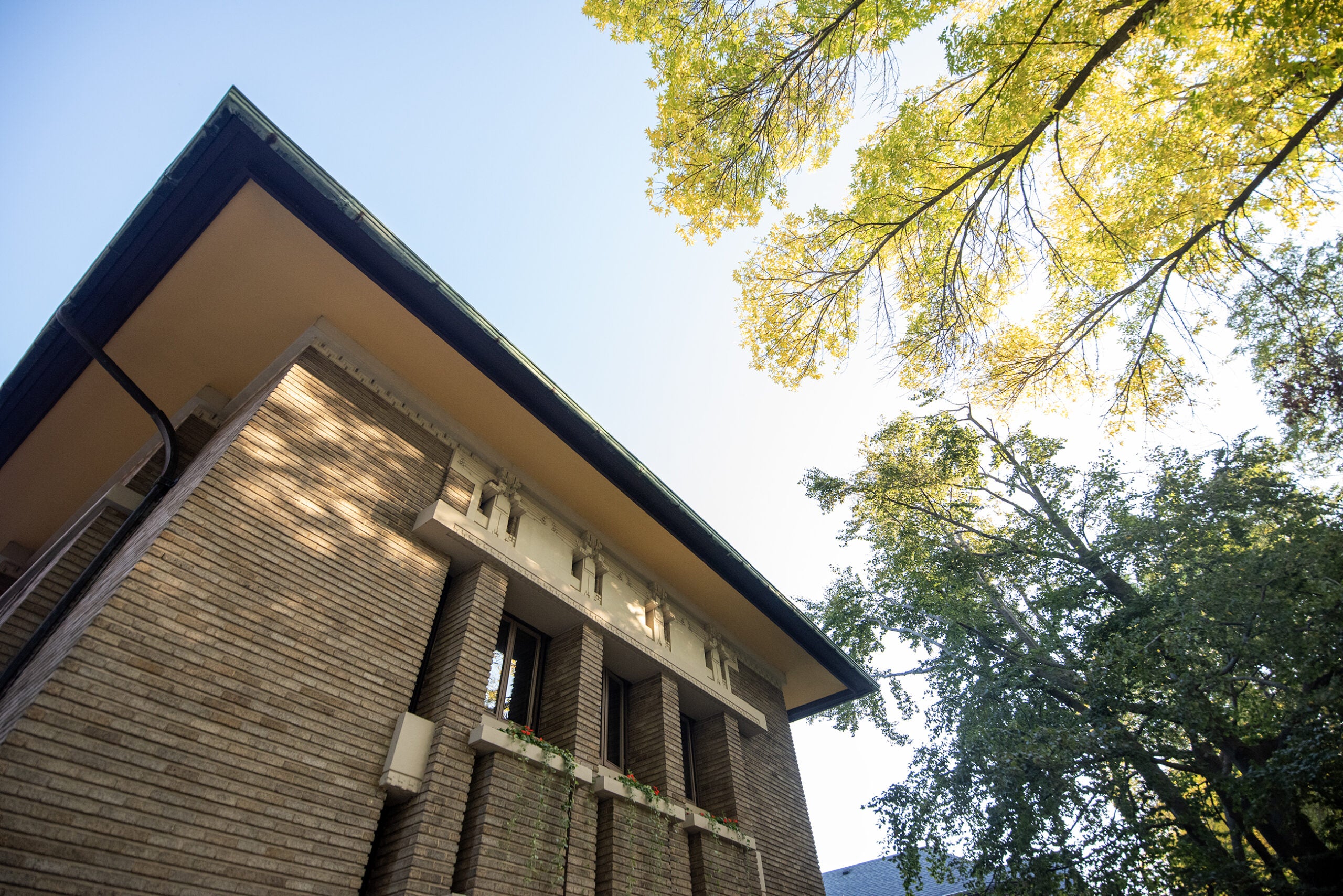
Waters said the home does have “strong connections” to the Prairie style, which Wright is famous for. That style includes an emphasis on the horizontal rather than the vertical and can feature flat or shallow hipped rooflines, rows of windows, overhanging eaves and bands of stone and wood or brick across the surface, according to the Chicago Architecture Center.
Waters said Wright wasn’t doing much work in America at the time because the Imperial Hotel was taking so much time to complete.
“So that makes Bogk House that much more significant in this time period,” he said.
Since 1955, the home has been cared for by the Elsner family and its current owner Barbara Elsner, who was a founding board member of The Frank Lloyd Wright Building Conservancy. After the Elsners moved in, Wright wrote to the family that the home was a “a good house of a good period for a good client.”

Barbara Elsner, who is now 97, raised five children in the home. More recently, Barbara’s daughter Margaret has been living there.
“They were such great stewards of the property and to understand that they raised five children there and kept it in that condition is pretty remarkable,” LeGrand said.
The home
The floor plan of the home features an open layout, with multi-level living space on the main floor and five bedrooms and a sitting area on the second floor.
The living room is on the first floor, in the front of the house, and features a fireplace. The kitchen and the dining room are in the rear of the house.
“The home is a rare instance of a Frank Lloyd Wright house with a spacious attic, which was a request from Mrs. Bogk so she could do her laundry indoors. Also atypical of Wright’s designs of this period, the home includes an attached one-car garage,” a press release from Christies International Real Estate said.
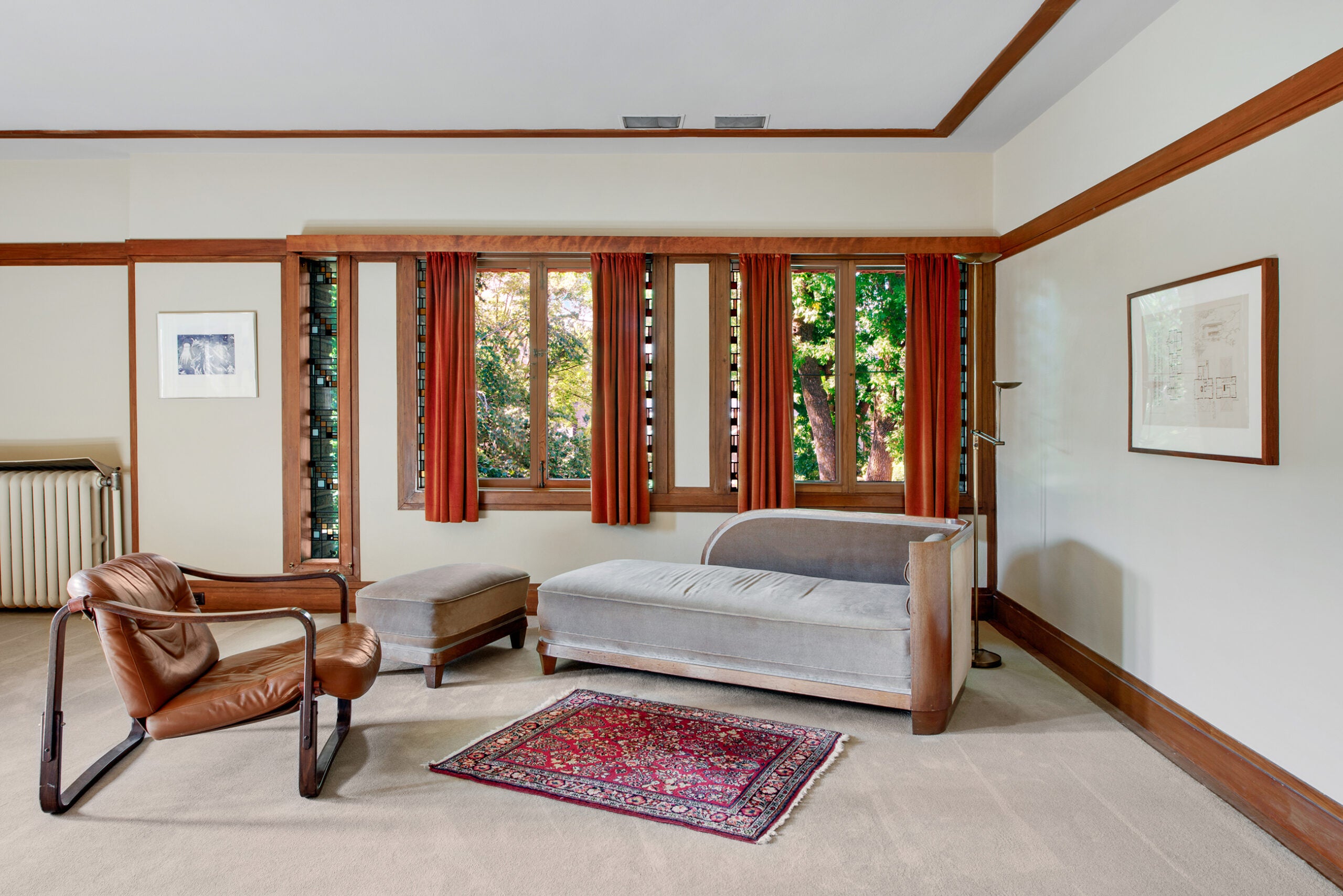
Facing the street, the home features horizontal brickwork as well as large windows with leaded glass that keeps the home filled with natural light.
“As the sun travels throughout the day, what I really enjoy is watching how the sunlight organically changes the look and feel of each space in the interior of the home,” LeGrand said.
The living room takes up two quadrants, the dining room takes up a quadrant and the kitchen takes up another quadrant on the first floor, Waters said.
“It still has the wonderful flow that these houses have, and the separation between the service areas — the kitchen and such — from a very open living room, dining area,” he said.
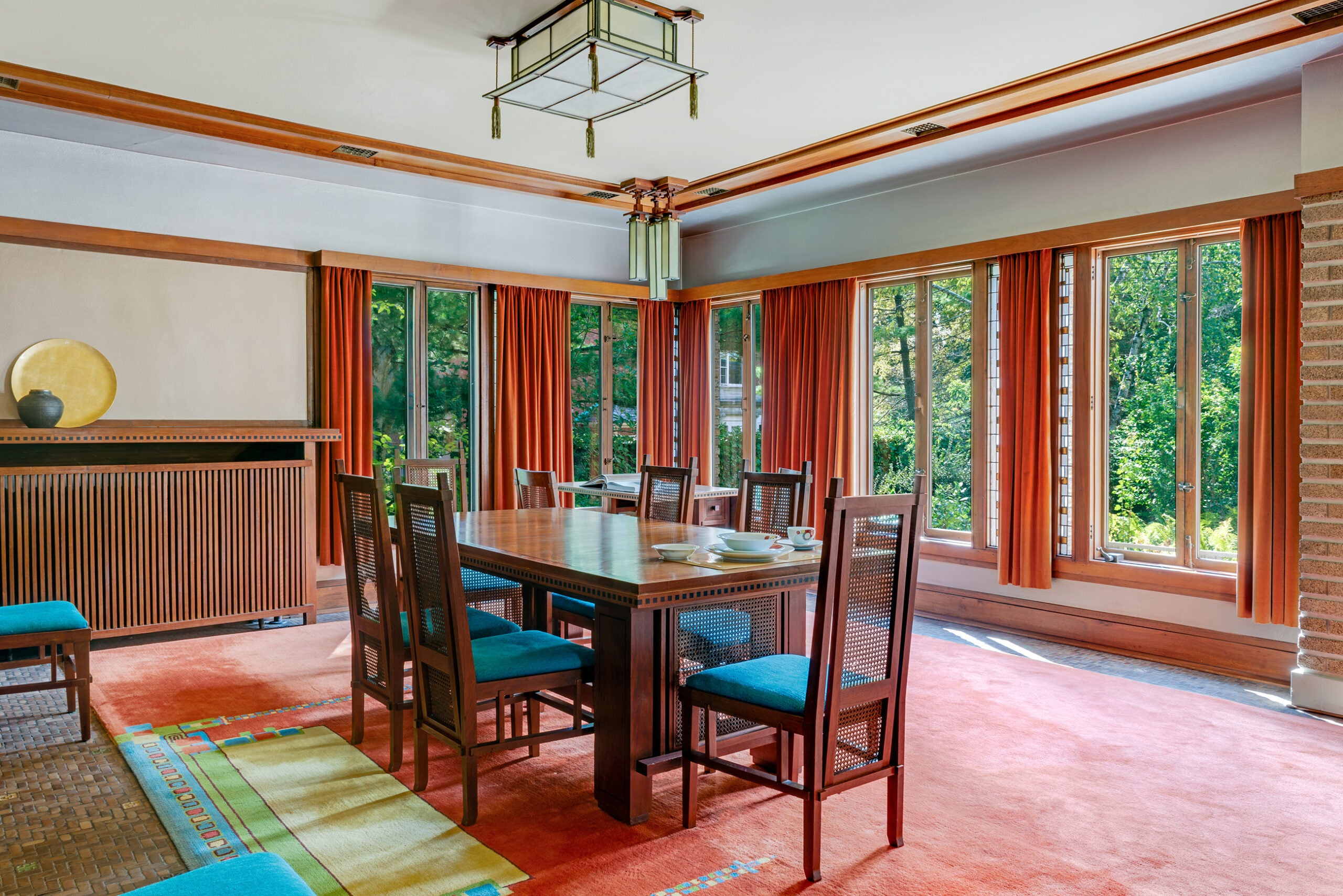
Wright designed other homes and buildings in Milwaukee, but not custom-built and designed homes for families like the Bogk House.
“It’s not your typical Frank Lloyd Wright, built into the landscape sort of home,” LeGrand said. “It’s interesting to see it in the city.”
The home has numerous built-in features which are designated historic easements and must be preserved into perpetuity. Waters said those easements are to make sure the building is preserved “as Wright more or less intended.”
“We certainly recognize that these buildings need to move with the times. So things like kitchen, bathrooms, air conditioning, that sort of thing — making sure those elements meet modern expectations really are a part of the preservation process of these buildings,” he said.
Wisconsin Public Radio, © Copyright 2025, Board of Regents of the University of Wisconsin System and Wisconsin Educational Communications Board.

